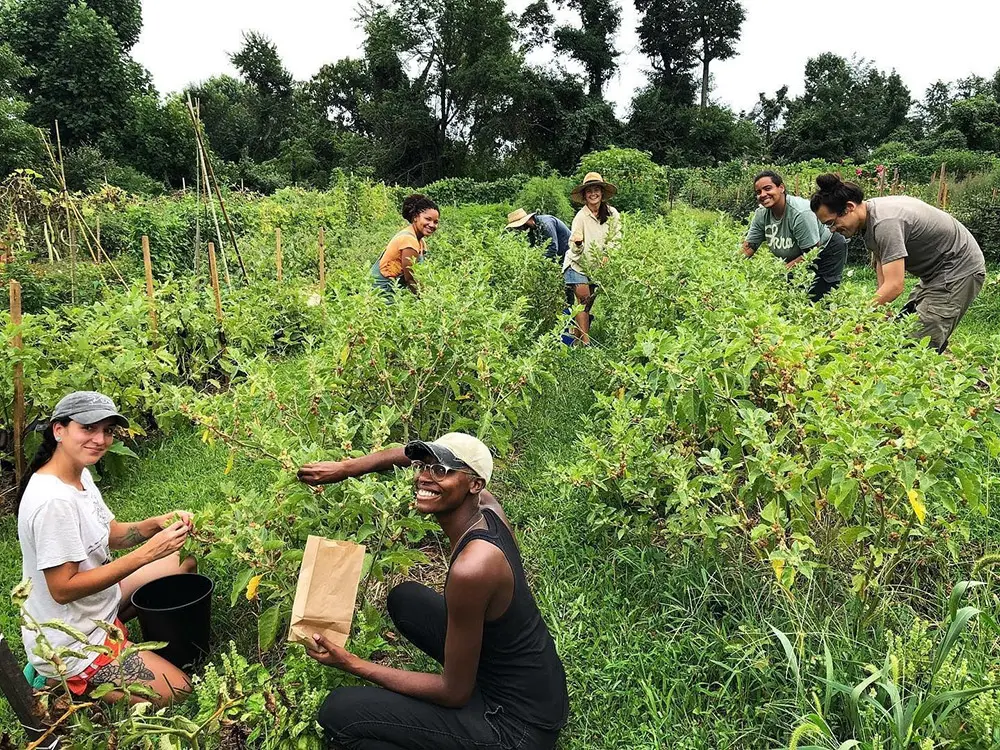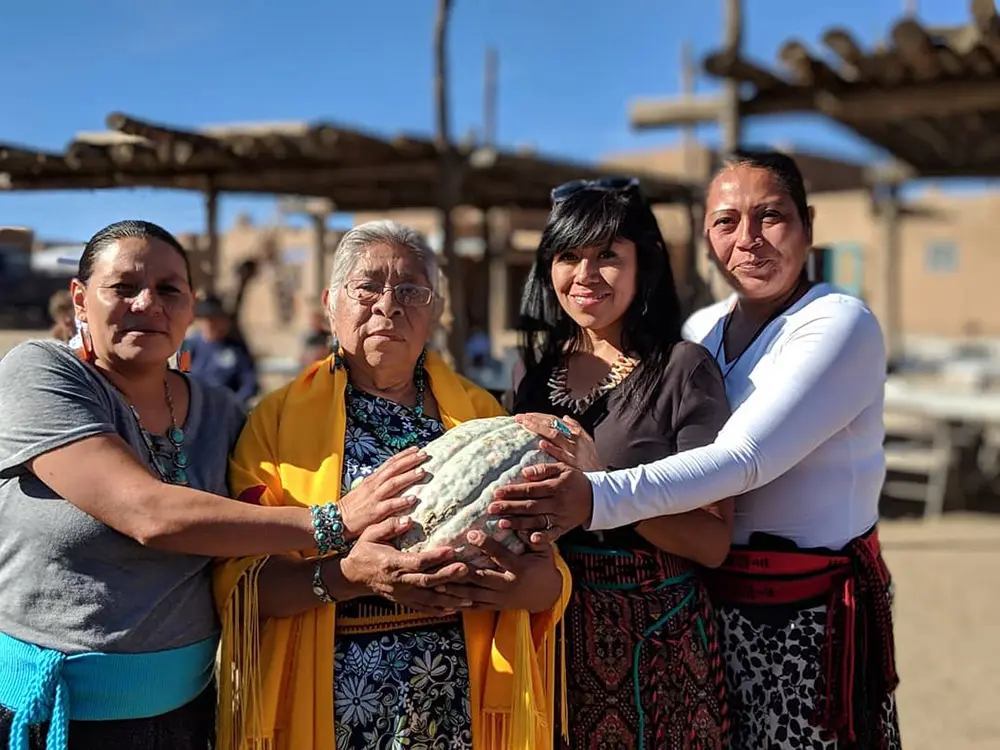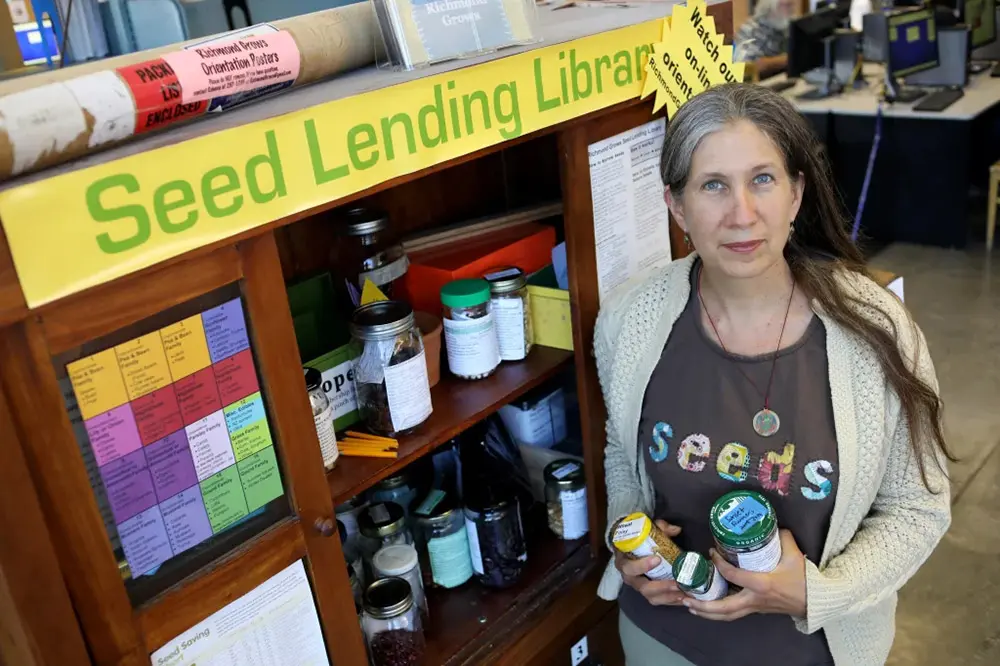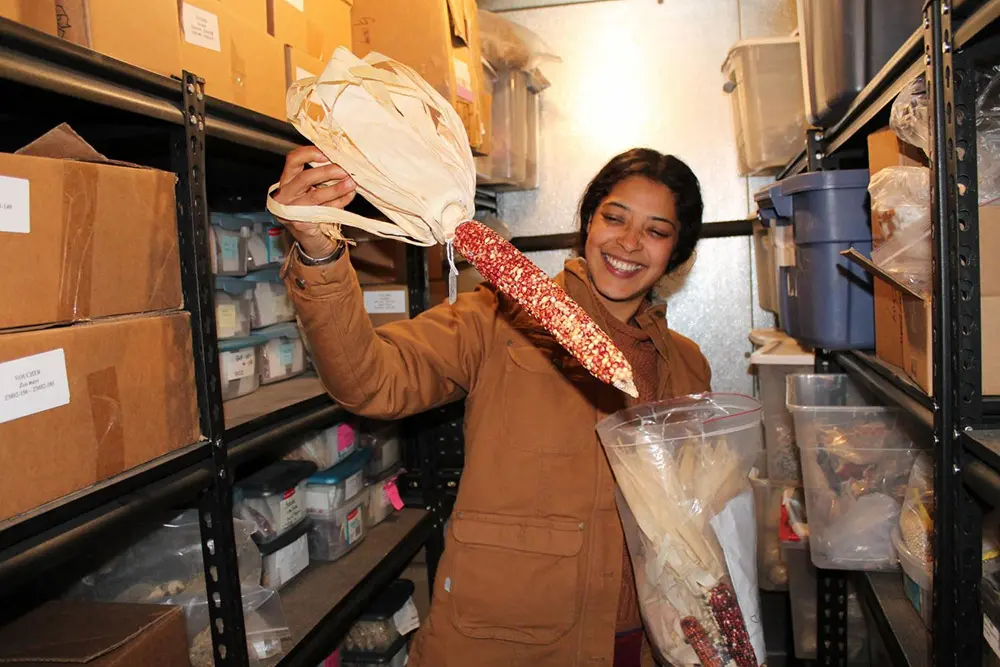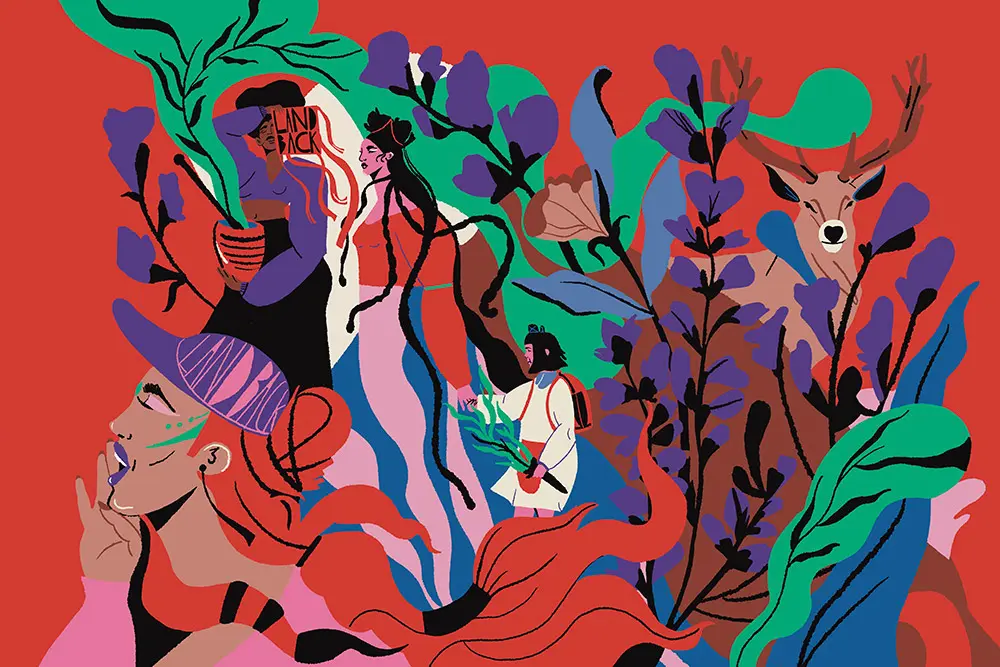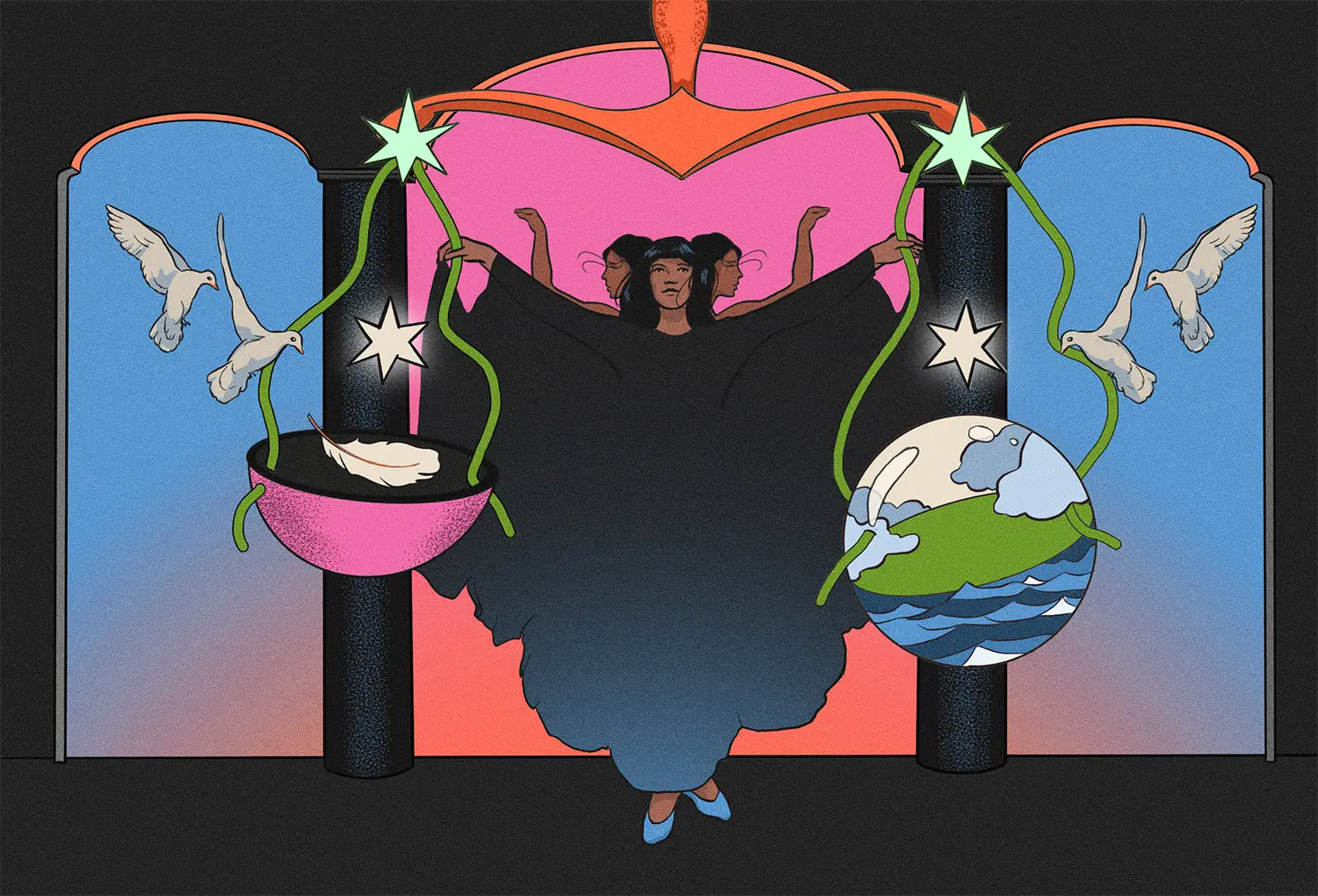Climate resilience as Seedkeeping
Seedkeeping is a powerful tool to:
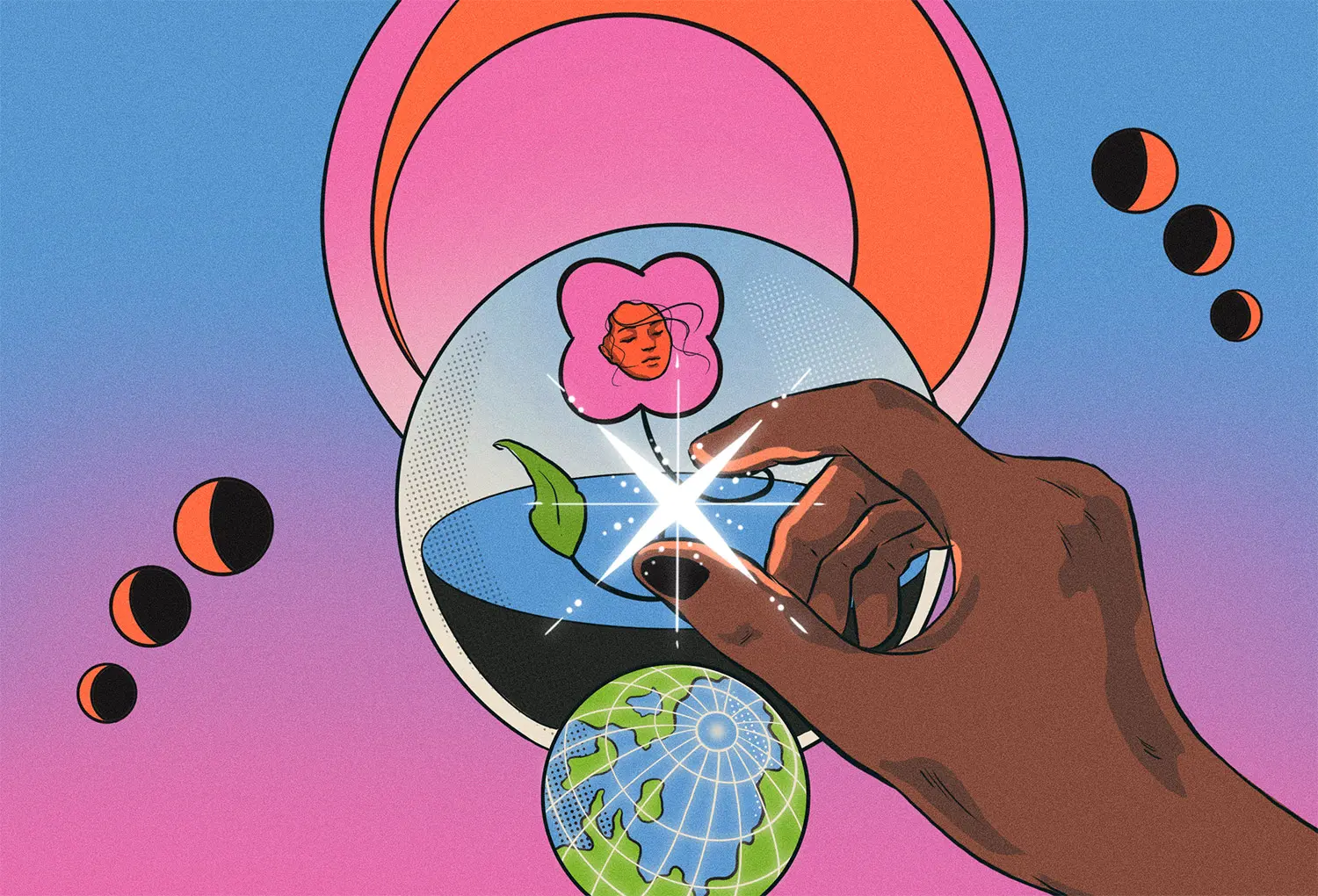
What it is: Seedkeeping, also known as seed saving, refers to the millennia-old process of collecting, drying, and carefully storing the seeds that a plant produces in order to grow a new crop from them the following year and to preserve seeds for the future.
Some additional context: For more than ten thousand years, it was customary for people to harvest and save seeds as they grew food each season. This practice allowed seed keepers to preserve and pass down incredible genetic biodiversity, ancestral wisdom, and cultural identity, and to ensure that their communities would eat well for generations to come. They optimized for taste, texture, fruit size, hardiness, productivity, color, shape, disease and insect resistance, seasonality, and more, adapting their seeds to the local growing conditions over time and growing ever-tastier varieties. There are also countless examples of seed saving as an act of resistance, sovereignty, and survival—of West African women braiding the seeds of sugarcane, yams, collard greens, and rice into their hair before being violently expelled from their homelands, and of Cherokee peoples carrying deep purple and jet black pole beans in their pockets along the Trail of Tears as they were forcibly displaced from their ancestral lands.
The idea of sovereignty is something that I can’t tie just to the ownership of land. If that were the case, we’d be done for. My people lost the land from the moment that we got here. [Seeds are] the way I can take the land with me. Christopher Bolden Newsome of Truelove Seeds
Seeds have historically been regarded with tremendous reverence as the beings from which life emerges and is sustained. Until recently, seeds were not widely viewed as a commodity to be sold for a profit. At the turn of the twentieth century, the American Seed Trade Association campaigned hard to change that. They hired some of the very first lobbyists to stop congressional seed distribution, a (admittedly flawed) federal program that had distributed billions of packets of free seeds to farmers over the several decades prior. In 1924, the program offifcially shut down, making way for companies to profit off of farms by inventing seeds that could not be saved. Industrial agriculture giants like Monsanto, Dow, and DuPont developed and patented hybrid seeds which not only cannot be re-sown, but were also bred to depend more heavily on chemical products, which these corporations also sold. As more and more farms purchased these supposedly high-yielding seeds and seed companies grew ever-more litigious, seed saving eventually became too legally risky even for farmers who were still growing food from their own seeds; if their heritage seeds were contaminated by the patented seeds from a nearby farm, they could face a costly lawsuit. In 1930, a mere .5% of farmers planted commercial seeds. Today, that number has rocketed to over 90%. During the same span of time, we’ve collectively lost more than 90% of edible plant varieties. When genetic biodiversity is lost, it’s lost for good.
Continue readingWhy it’s a climate resilience powerhouse:
Preserving plant biodiversity:
With just a handful of seed varieties per crop, food supply is particularly vulnerable to extreme climate conditions, insect infestations, and crop diseases, all of which can expect to be exacerbated by social, political, and environmental threats in the coming decades. For instance, the Great Potato Famine of the mid-1800s devastated Ireland, where the vast majority of potatoes were of a single variety susceptible to blight. Meanwhile, Quechuan communities in the Peruvian Andes, where the disease was said to originate, knew to grow hundreds of potato varieties, understanding that if some varieties didn’t do well, the community would never go hungry. Plant biodiversity is an insurance policy that positions us to adapt and continue feeding our communities through crisis. Rich biodiversity forms the basis of a thriving and resilient food system.
Continue readingThe failure to understand biodiversity and its many functions is at the root of the impoverishment of nature and culture” Vandana Shiva, environmental activist, food sovereignty advocate, and author (Source)
Helping food systems adapt to changing conditions
As seed sovereignty activist and Mohawk seedkeeper Rowen White explains, “Seeds are a talisman of innovation, adaptation, and creativity embodied.” Rowen elaborates that seeds are incredibly dynamic, continually renewed based on the environment that they’re in. With time and thoughtful stewardship, seeds can adjust to less water, more extreme heat, and other forms of stress, so that they’re able to thrive and produce an abundance of food even as the impacts of the climate crisis and interrelated ecological crises grow more severe.
Continue readingBuilding independence from and resisting multinational agrochemical and biotechnology corporations and biopiracy
It’s hard to overstate (or succinctly summarize) the harm inflicted by the agriculture+ monopolies who have spent the past several decades violently wrangling for control over the entire global food system. Farmers have born the brunt of mounting expenses, plummeting crop yields and heightened vulnerability to crop failure, insurmountable debt, and deep distress (in India, an estimated 30 people in farming sector are dying by suicide each day). Communities adjacent to industrialized farmland have experienced spikes in both acute and chronic health impacts linked to the toxic pesticides, fertilizers, and other agrochemicals that patented seeds are strategically engineered to depend upon. The health of soils and nearby waterways have deteriorated, too. Reclaiming seed sovereignty is a powerful way to resist the monopolization of the global food system and the violence enacted by agriculture monopolies as well as the very notion that living systems can be patented.
Continue readingWe do not own the seeds, we borrow them from our Children. Mohawk Proverb (Source)
Reclaiming and reconnecting with ancestry and culture
Heirloom seeds are both a time capsule of the past and a promise for the future. Therefore, when seedkeeping practices are reignited and/or the seeds that sustained and nourished ancestors are returned back to their rightful seedkeepers and motherlands, it can be incredibly healing. Reclaiming ancestral seeds can mean being able to bring back culturally significant foods, pass down important cultural teachings to the next generation, reinstate spiritual practices, and even revitalize the physical health and wellbeing of a community.
The seed in its essence is all of the past evolution of the Earth, the evolution of human history, and the potential for future evolution. The seed is the embodiment of culture because culture shaped the seed with careful selection—women picked the best, diversified. That is a convergence of human intelligence and nature’s intelligence. It is the ultimate expression of life, and in our language, it means 'that from which life arises on its own, forever and ever and ever.' Vandana Shiva, environmental activist, food sovereignty advocate, and author (Source)
Strengthening community interdependence
Particularly when seeds are stewarded together and/or shared amongst community members, whether via seed libraries or more informal seed swaps, connections are forged. Seedkeeping is an incredible opportunity for people to slow down and practice being in reciprocal relationship with one another, the land, and the more-than-human beings in their community.
Continue readingThe nuance / caveats:
Seed saving isn’t always simple or straightforward. For instance, many farmers take great pains to steward heirloom seeds only to find that genetically engineered seeds have ended up on their land, contaminating their seeds without their consent, and ruining seed lines developed over generations.
Spotlights

Truelove Seeds is Southwest Philadelphia-based seed company and food justice organization committed to cultural preservation, seed rematriation, and community food sovereignty. They’ve curated several collections of culturally important, heirloom seeds, including an African Diaspora Collection which honors crops that have been central to the experience of Africans in America, from blue sesame and sweet sorghum to scotch bonnet peppers and cow horn okra. They also host an awesome radio show/podcast, Seeds & Their People.
You can support Truelove Seeds by borrowing* seeds from their online marketplace or making a donation.
*We use the language “borrow” instead of “buy” to resist the idea of seeds as commodities and reinforce the idea that we are borrowing seeds from our descendants and thus must steward them responsibly.
Continue reading about Seedkeeping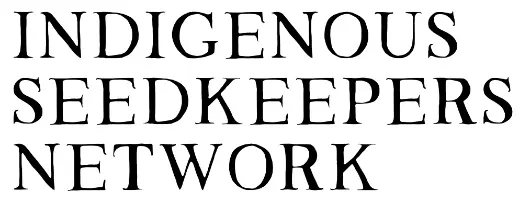
Indigenous Seed Keepers Network is a collaboration between Rowen White and Native American Food Sovereignty Alliance to assist and resource grassroots regional and tribal seed sovereignty projects across Turtle Island. They host gatherings and workshops and offer facilitation and mentorship. ISKN is also working to coordinate the rematriation of seeds, or the reuniting of seeds with their motherlands and rightful seedkeepers. You can support their work by making a donation to the Native American Food Sovereignty Alliance.
Continue reading about Seedkeeping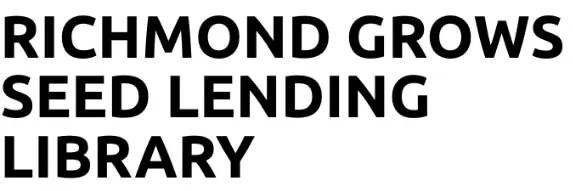
Richmond Grows Seed Lending Library is a nonprofit seed lending library located in a public library in Richmond, California. Anyone (library card or no library card) can borrow seeds, and Richmond Grows offers classes on home gardening and seed saving to help folks get started. The project has also expanded to support the proliferation of other seed lending libraries. Rebecca Newburn, the library’s cofounder, has developed a replicable seed-lending library model and guidance for others getting started, hosts an annual seed library summit, and is growing an ecosystem of Little Free Seed Libraries inspired by the Little Library model.
You can support Indigenous Seed Keepers Network by making a donation, volunteering, or growing out seeds to return to the community.
Continue reading about Seedkeeping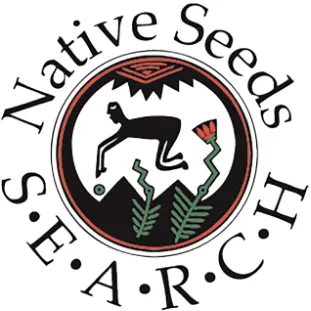
Native Seeds/SEARCH is a Tucson, Arizona-based nonprofit that has been saving and distributing heirloom seed adapted to the arid Southwest since 1983. Thus far, they have preserved nearly 2,000 varieties of seeds adapted to the Southwest, many of them rare or endangered, representing the cultural heritage and knowledge of over 50 Indigenous communities.
You can support their work by borrowing* seeds from their online marketplace, making a donation, or volunteering in their Grow-out Gardens. If you are Indigenous to the Greater Southwest Region or are an Indigenous person living in the Greater Southwest Region, you’re eligible for 15 free seed packets per year through their Native American Seed Request Program.
Continue reading about SeedkeepingResearch + reflection prompts:
- Which foods and medicinal plants were meaningful to your ancestors, and which of those plants might grow well where you currently reside?
- Which foods and medicinal plants are meaningful to the original stewards of the watershed in which you reside, and which people or organizations are working to return seed ancestors home to their peoples and reclaim seed sovereignty?
- Are there any seed saving libraries or seed exchange groups in your community that you might be able to tap into?
- In growing a garden and saving seeds with intention and care, which qualities feel the most important to hone and preserve to nourish, heal, connect, and delight community for generations to come?
How to get engaged:
seedkeeping practice
If you have access to space to grow plants: Start a seedkeeping practice at home or at your local community garden. Begin by planting open-pollinating seeds (meaning that they produce offspring identical to the parent, unlike hybrids), which are oftentimes marked “OP” on their seed packet, and choose self-pollinating crops, like beans, peas, lettuces, and peppers, while you’re getting comfortable with the process. Try to plant just one variety in a species to prevent cross-pollination and preserve pure seeds. When seeds are ripe, oftentimes after the crop has matured, select seeds from the healthiest plants and consider which qualities you’d like to optimize for (i.e., save seeds from the plants that didn’t experience disease infestation, that produced the most fruit, that tasted the yummiest, etc.). Clean and dry seeds. Store dried seeds in paper envelopes or seed packets labeled with the variety name and date of harvest. Learn more about the ins and outs of seed saving here. Borrow* seeds from your local seed library or online platforms like Seed Savers Exchange, Native Seeds/SEARCH, Southern Exposure Seed Exchange, Hudson Valley Seed Co, or Truelove to get started. See attached guide for more.
*We use the language “borrow” instead of “buy” to resist the idea of seeds as commodities and reinforce the idea that we are borrowing seeds from our descendants and thus must steward them responsibly.
Seed Library
If you have access to time and a passion for seeds: Visit, volunteer at, or start a seed library in your community. Unsure if your community already has a seed library? This database is a great resource to start your search! Seed libraries are set up for patrons to check out seeds for free and return well-labeled seeds for others to check out. They help to cultivate reciprocity and interdependence, local biodiversity, food system resilience, and seed accessibility for all. If you’re helping to organize or set up a seed library, consider sectioning seeds by level of difficulty to grow, ensure that seeds are well-labelled, make instructions for use highly visible, ideally in multiple languages, and get the word out so that community members know the seed library exists.
Seed Swap
If you have access to a robust community network: Host a seed swap with community members to exchange seeds and introduce seed saving to folks new to the practice. Consider beginning the swap in a circle, expressing gratitude for the seeds and the ancestors who saved them, and sharing more information about the purpose and logistics of the event.
Advocate
If you’re passionate about policy: Advocate to shift your city and/or state’s seed laws to allow seed sharing activities and to protect the seed commons. Check out the Sustainable Economies Law Center’s Seed Law Tool Shed and Seed Democracy Toolkit for oodles of resources to better understand your state’s current laws and/or help craft new policy.
Financial Support
If you have access to financial resources: Help to fund the efforts of seed keepers and organizations (like those spotlighted above) who support the reclamation and preservation of seed sovereignty, advocate for the legal protection of heirloom seeds, and help to facilitate seed saving and exchange.
General Best Practices
Seeds are sacred. Seeds are ancestors and relatives. Treat them accordingly.
A smattering of resources for continued learning + action:
Short Reads
- “The Seeds of Ancestors: A Day at Soul Fire Farm” by Chelsea Steinauer-Scudder in conversation with Leah Penniman in Emergence Magazine
- “As Climate Change Threatens Food Supplies, Seed Saving is an Ancient Act of Resilience” by Sarah Van Gelder in Yes Magazine
- “The Sobering Details Behind the Latest Seed Monopoly Chart” by Kristina Kiki Hubbard in Civil Eats
- “Vandana Shiva on the Wisdom of Biodiversity” by Vandana Shiva in Atmos
- “For a Sustainable Food System, Looks to Seeds” by Breanna Draxler in Yes Magazine
Long Reads
- Vandana Shiva’s body of work, including but not limited to Stolen Harvest: The Hijacking of the Global Food Supply (2000), Earth Democracy: Justice, Sustainability, and Peace (2015), Who Really Feeds the World?: The Failures of Agribusiness and the Promise of Agroecology (2016), and Seed Sovereignty, Food Security: Women in the Vanguard of the Fight against GMOs and Corporate Agriculture (2016)
- The Unlikely Peace at Cuchumaquic: The Parallel Lives of People as Plants- Keeping the Seeds Alive by Martín Prechtel
- Seeds of Resistance: The Fight to Save Our Food Supply by Mark Schapiro
- The Seed Detective: Uncovering the secret histories of remarkable vegetables by Adam Alexander
Watch
- ★ Seed: The Untold Story: A 2016 documentary following passionate seedkeepers around the world resisting dwindling seed diversity and protecting millennia-old food legacies
- The Seeds of Vandana Shiva: A 2021 documentary that tells the remarkable life story of eco-activist and agro-ecologist Vandana Shiva. The film will be available for individual downloads in 2023 and is available now for community screenings
